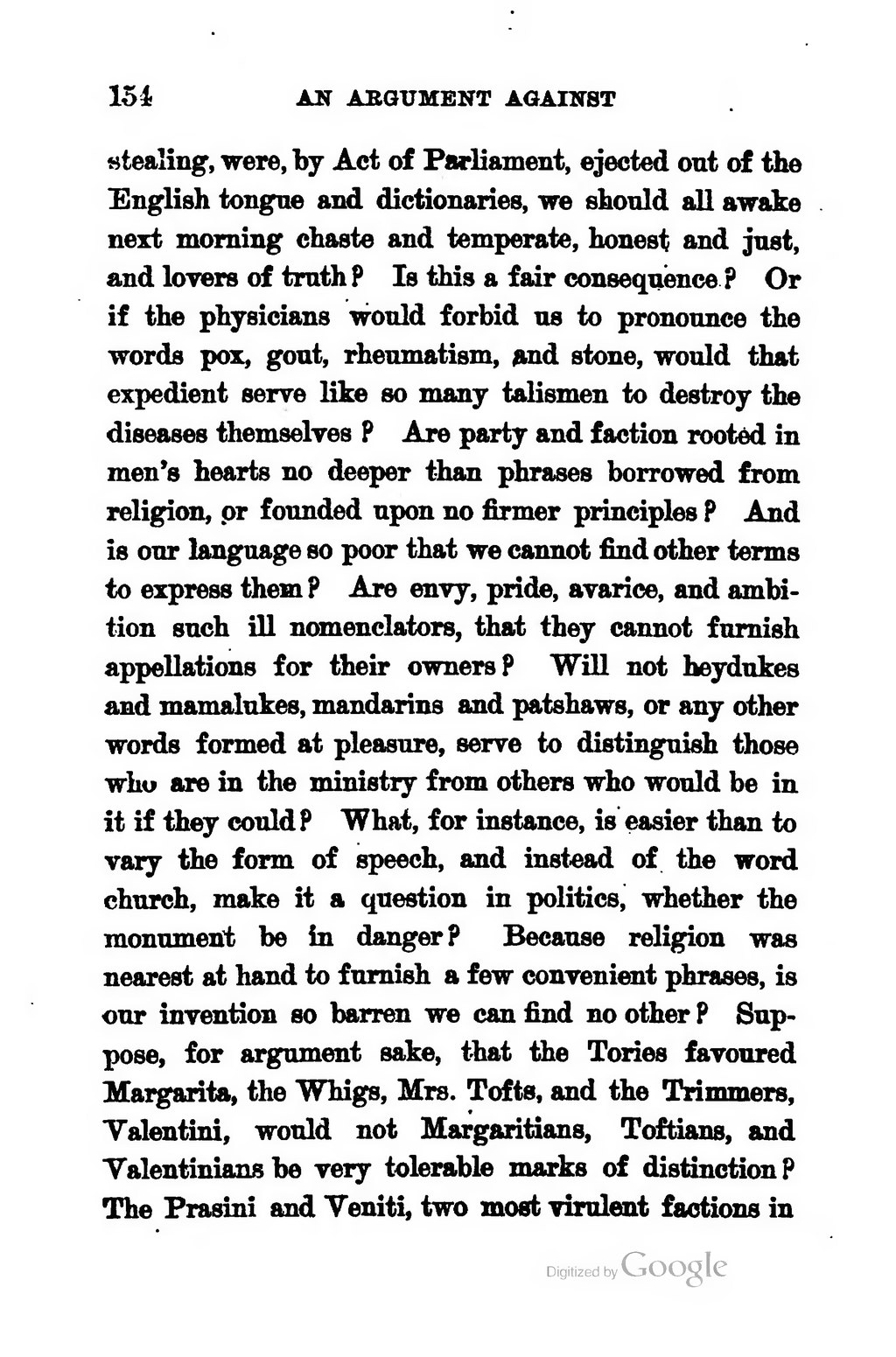stealing, were, by Act of Parliament, ejected out of the English tongue and dictionaries, we should all awake next morning chaste and temperate, honest and just, and lovers of truth? Is this a fair consequence? Or if the physicians would forbid us to pronounce the words pox, gout, rheumatism, and stone, would that expedient serve like so many talismen to destroy the diseases themselves? Are party and faction rooted in men’s hearts no deeper than phrases borrowed from religion, or founded upon no firmer principles? And is our language so poor that we cannot find other terms to express them? Are envy, pride, avarice, and ambition such ill nomenclators, that they cannot furnish appellations for their owners? Will not heydukes and mamalukes, mandarins and patshaws, or any other words formed at pleasure, serve to distinguish those who are in the ministry from others who would be in it if they could? What, for instance, is easier than to vary the form of speech, and instead of the word church, make it a question in politics, whether the monument be in danger? Because religion was nearest at hand to furnish a few convenient phrases, is our invention so barren we can find no other? Suppose, for argument sake, that the Tories favoured Margarita, the Whigs, Mrs. Tofts, and the Trimmers, Valentini, would not Margaritians, Toftians, and Valentinians be very tolerable marks of distinction? The Prasini and Veniti, two most virulent factions in
